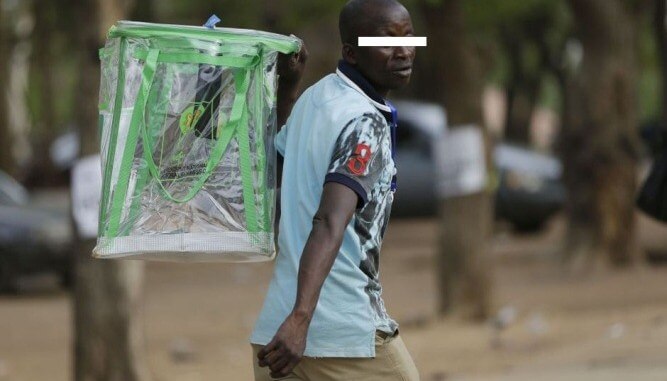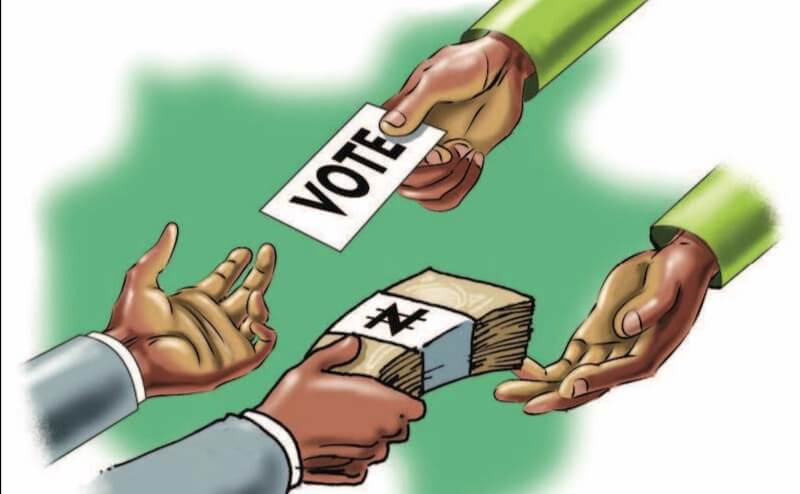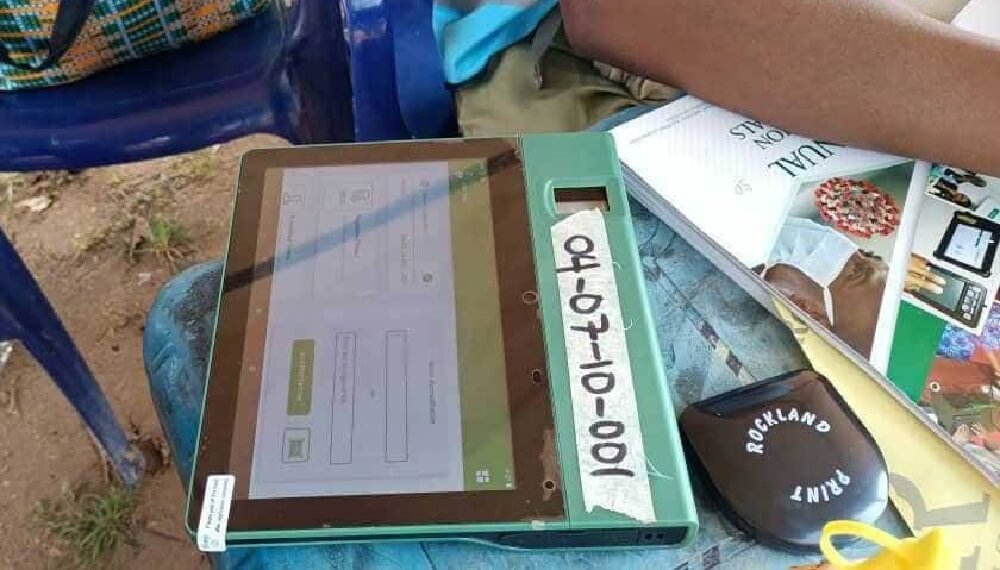Professor Mahmood Yakubu, chairman of the Independent National Electoral Commission (INEC), has identified four major areas of concern to Nigerians regarding the 2023 general election.
In exactly 93 days from today, the citizens would be going to the polls first to elect the nation’s next president and national assembly members on February 25, 2023, after which the governorship and state assembly election would be held on March 11, 2023.
Advertisement
According to Yakubu, security, campaign finance, technology, and the use of Permanent Voters’ Cards (PVCs) constitute four key areas where Nigerians expect assurances as the elections draw near.
The INEC boss stated this on Wednesday at a stakeholders’ forum organized by the Nigeria Civil Society Situation Room at the Nigeria Air Force (NAF) conference center in Abuja.
INSECURITY
The issue of security is one area where Nigerians expect to receive assurances of progress and barriers being encountered.
Advertisement
Regarding this, Yukubu said “The Commission has the responsibility to conduct elections. However, securing the environment for the deployment of personnel and materials as well as the peaceful conduct of elections is a shared responsibility involving the security agencies, the political actors and their supporters, the media and all other critical stakeholders.

“The perennial insecurity in the country is a source for concern. This existing challenge is compounded by the unfortunate incidents of attacks on campaigns, rallies and processions across all political parties. Although the provisions of the Electoral Act 2022 and the Commission’s Regulations and Guidelines for Political Parties are clear, the Commission has found it necessary to remind political parties, candidates and their supporters on the provisions of the law and their responsibilities. Accordingly, tomorrow Thursday 24th November 2022, the Commission will release a summary highlighting the legal provisions governing the conduct of political rallies, processions and campaigns. This will be uploaded to our website and social media platforms.
“Beyond the provisions of the law, the Commission held an emergency meeting of the Inter-Agency Consultative Committee on Election Security (ICCES) in the wake of the recent condemnable attacks on our Local Government offices in Ogun and Osun States. Far-reaching resolutions were arrived at, including the deployment of joint security teams to our facilities nationwide. Beyond that, the Inspector General of Police summoned an extraordinary meeting with leaders of political parties on the imperative of peaceful campaigns. We will continue to follow up on that bold step in our engagement with political parties and other critical stakeholders.”
CAMPAIGN FINANCE
Advertisement
Since Nigeria returned to democratic rule in 1999, the country has had six circles of regular general elections with political parties and their candidates being constantly accused of breaching the law on the need to submit their audited financial reports to the commission.

One of the reasons for this is to curb vote buying which Professor Yakubu has described as a “diabolical practice”.
The INEC boss said in this regard, “the Commission is determined to tackle the matter (violation of campaign funding) frontally. Areas of violation include party and candidate expenditure beyond what is provided by law and the diabolical practice of vote buying at polling units on Election Day.
“Here again, the Commission will tomorrow Thursday 24th November 2022 publish a summary of the guidelines on finances and election expenses of parties and candidates. Beyond that, we are mobilising every national institution with the responsibility for tracking and combating the illicit flow of funds as well as the broadcast and print media regulatory agencies to confront the problem head-on. The details of this will be unveiled shortly.”
TECHNOLOGY (BVAS and IReV)
Advertisement
The commission also assured that fears being expressed on alleged plans to frustrate the use of the Bimodal Voter Accreditation System (BVAS) and electronic transmission of results are needless as it was committed to deepening transparency in the country’s electoral system.
According to him, the BVAS machines will be the only means of accreditation of voters on election day.
“On technology, the Electoral Act 2022 requires the Commission to deploy technology on Election Day for voter accreditation and the upload of polling unit results to the INEC Result Viewing (IReV) portal. These processes will be achieved through the use of the Bimodal Voter Accreditation System (BVAS).

“I wish to reassure Nigerians that the BVAS has come to stay as the only means of voter accreditation. There will be no incident form on election day. Results from polling units will be uploaded to the IReV portal in real-time. Nigerians will view the results as they are uploaded.
“For the last two years beginning from August 2020, the Commission has published results direct from polling units in 105 off-cycle Governorship and bye-elections in real-time and the results can still be viewed on the IReV portal. The 2023 General Election will not be different. There is no truth in any insinuation to the contrary. This should put to rest the erroneous notion that Nigerians will not have the opportunity to view polling unit results uploaded by Presiding Officers in real-time on Election Day,” he said.
Permanent Voters Cards (PVCs)
Professor Yakubu during the meeting with the Nigeria Civil Society Situation Room revealed that INEC will soon release the timelines and procedure for the collection of PVCs. He said this against the backdrop of concerns by some Nigerians who complained that they were yet to receive their voters’ cards despite registering early.
“On the collection of Permanent Voters Cards (PVCs) for fresh registrations in 2022 as well as applicants for transfer to other polling units and the replacement of damaged or lost cards, we wish to assure Nigerians that the Commission will soon release the timelines and procedure for the collection of PVCs. With the ongoing display of the register for claims and objections, the Commission considered it appropriate to conclude the process so that the cards will not be in the hands of ineligible registrants who may attempt to use them during the election. We understand the anxiety of Nigerians to collect their PVCs and appeal for a little patience as we speedily conclude the necessary safeguards for a transparent process.”

The INEC boss added, “The cleaning up of the voters’ register is critical to elections. We have been transparent in making the register available both online and manual copies in 9,583 locations nationwide (8,809 Wards and 774 Local Government Areas) for scrutiny by citizens as required by law. The voters’ register is the largest database of citizens in Nigeria. Like all databases of this size, it cannot be perfect. However, the Commission believes that Nigerians are the real owners of the voters’ register. They are therefore in a best position to point out ineligible persons on the register, including deceased persons, that will help the Commission to improve on this critical national asset. I want to reassure you that based on the observations made by Nigerians, we will dutifully clean up the register ahead of the election.
“Election is a multi-stakeholder activity. We are working with all stakeholders to deliver credible and transparent 2023 General Election. We are only answerable to Nigerians and will continue to defend the integrity of the electoral process. It is for this reason that we cherish our partnership with the civil society. I wish to reassure you that we will continue to work together for the improvement of our electoral process.”
Yakubu said between 2019 when the last general election was held and now, Nigeria’s electoral process has undergone a significant transformation, including the implementation of over 170 recommendations made by various stakeholders.
He further stated that out of 14 activities listed in INEC’s 2023 election timetable and timeline, “we have so far implemented nine of them on schedule” while also making “tremendous progress in the production and delivery of critical sensitive and non-sensitive election materials to our State offices.”



